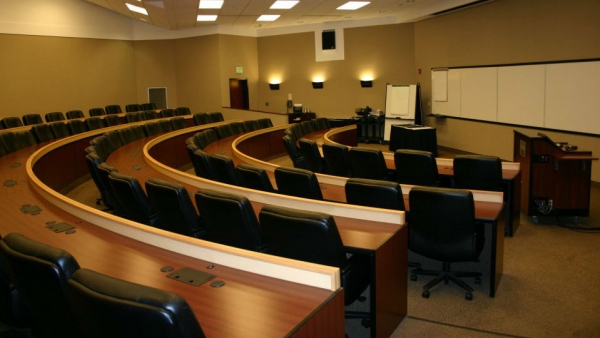We wanted to discover what students felt we did well so we could encourage more of the same and celebrate our successes, hoping to improve our scores in the National Student Survey and the teaching excellence framework. But the findings took us all by surprise
The feedback from the 1,000 responses was pleasingly positive in some areas. We felt smug that our students largely appreciated our efforts. But there was an unsettling, underlying narrative in the responses which felt shocking. Students were essentially asking: why don’t academics have more humanity?
They highlighted the lack of kindness, integrity and understanding when academic staff were interacting with them. Seemingly these are the things students really want more of – and so they should. We all deserve these in our lives.
Of course, this was not the only point the students raised. There were more familiar complaints about the lack of free printing, better IT systems, better organisation and timetabling of lectures, 24-hour library access, and so on.
But the responses made me wonder what has gone wrong. Students identified kindness, integrity and understanding as the most important things that would improve or change their student experience. These things are fundamental. Was I wrong to have assumed that all academic staff would simply be kind and treat students with respect?
Then the penny dropped. Maybe some academics have little appreciation of how their behaviour impacts on and influences students.
When asking for understanding, students highlighted the importance of acknowledging difference – different experiences, backgrounds, personal commitments and prior learning. They didn’t want to be treated like a homogenous group.
When alluding to kindness, students talked about wanting academic staff to have empathy and compassion, to smile and encourage. Most revealingly, they asked academics “to treat and talk to me as though I’m a person”. This is pretty devastating: it’s hard to see how anyone can learn and develop when they feel like that.
Some academics act with contempt and irritation for the very people they should want to inspire, educate and collaborate with. Perhaps we have lost our self awareness. Maybe we have forgotten the point of higher education. It is possible that we are so browbeaten ourselves that we’ve lost our sense of common decency.
How did this happen? Maybe we have been co-opted into believing this is how higher education is, repeating a mantra like “they’re adults”, “it’s spoon-feeding”, “they’re here to read for a degree” or “if you’re nice to them they’ll just want more”.
Perhaps we need to stop and take a moment to think about the damaging effect of this type of behaviour. If we all took a bit more responsibility for our own actions and the actions of others, we could make a difference. We could change the culture and be more collegiate, care a little more and perhaps even begin to reprioritise the most important things.
As academics, we might fear the repercussions of questioning our behaviour. Maybe we don’t have the energy, believing it to be too difficult. But I hope we do it, because treating our students with humanity is vital.







